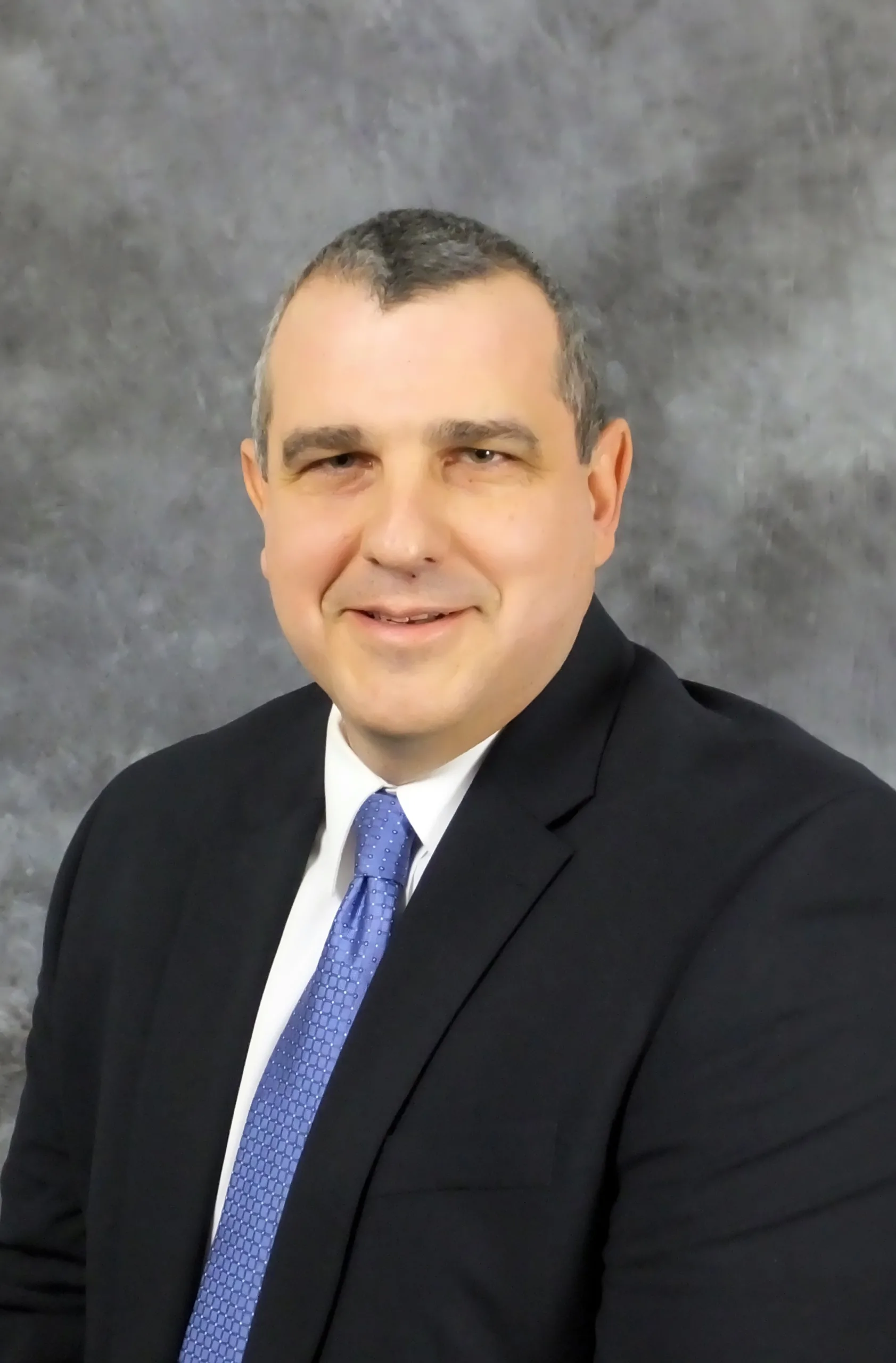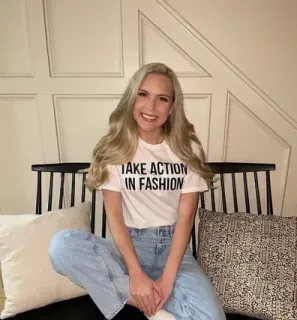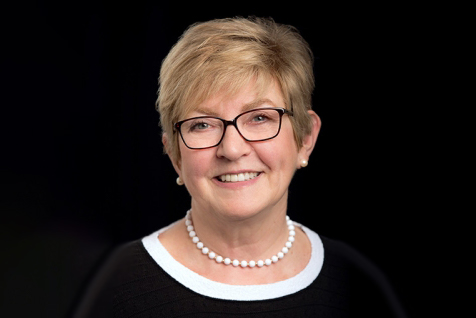Duane Elmore, Director of Procurement Services and Chief Procurement Officer
Why is sustainability important to you?
For me, there are two reasons. There’s a personal and a professional aspect. Personally, we all need to be good stewards of the environment we live in. Now and many years ago, when I was a kid, I would recycle glass bottles, recycle the brown paper grocery bags, and find ways to reuse them as well. I can remember when we used to use the grocery bags as book covers for school. I just thought that was always neat. We can reuse so many things we throw away that end up in a landfill. Over time, those ideas set the pace for me. I personally have a recycling and re-use program I implement around my house.
Professionally, there’s a total life cycle costing model that is applied to procurement practices. We have to think about it when we buy items for the university. You have to think about equipment costs, energy consumption, and disposal costs. You’re not going to keep something forever. So what’s it going to cost us to dispose of it, to operate it? Those are all factors to that total life cycle costing model that we have to apply to all the goods that we buy here. We’ve got some growing still to do here at Penn State, but we’re on the right track. It’s important that we get off the, what I call, “sticker price” or, just the sales price of when you buy something. There are a lot more expenses for that item the longer you keep it and as you get rid of it. We also have to be good stewards as far as looking at what our suppliers supporting the university are doing in the sustainability space. What sustainable standards do they have in their manufacturing processes? What types of packaging do they use? Are they using plastics? Are they using other resources that can be reused or recycled at a minimum? So, I’ve got a personal and professional interest in it. I think my professional interest is just built on what I started doing when I was a young kid. And, somehow, I got into a career field where it’s also important in the professional environment.
How did you start incorporating sustainability into your work?
You know it really wasn’t anything I personally did. It’s always been a factor. The incorporation part for me comes to putting greater visibility on it. I mean, the opportunity has always been there at any buying agency, it’s just making sure that it is a priority. Factoring in total life cycle costing and not operating off old ideas such as “this is the lowest priced item because it’s the cheapest.” Alright, that may be the lowest-priced item, but have you thought about all the additional costs that come with operating, maintaining, and disposing of this item?
Some of what you’re talking about reminds me of a circular economy, have you heard of the concept?
That’s something we’re already talking about and how we can consistently practice that concept in our everyday practices.
What does that mean in relation to your field?
A circular economy really incorporates all of the total life cycle costing model. The university has never had a sustainable procurement policy. We have a lot of policies on how to buy things, but we’ve never incorporated the sustainability aspect into any of our other procurement policies. But now, that draft is near ready to release. We should have a sustainable procurement policy released probably in the early summertime. What that is going to do is incorporate the circular economy, and total life cycle costing model into our procurement decisions. Instead of going by just the sales price, we will focus on what we call the best value solution, or your total cost. Your total expense from the time you order the item to the time the item is no longer associated with the university anymore.
What would be some of the aspects of the sustainable procurement policy?
One would be the types of products we buy. If we’re dealing with electronics, consider efficiency and Energy Star certifications. We need to move towards all LED lighting. Buying products with additional recycled content is important. Weighing in disposal and transportation cost. Looking at packaging standards. We also want to emphasize the use of more hybrid vehicles and maybe even electric vehicles within the university. There’s a lot of area to grow here.
What aspects of sustainability does your work focus on the most?
Goal 12 is one, responsible consumption and production because we want to be cognizant of what are consuming.
Goal 8, economic growth, is also a good one. We’re spending dollars. We’re collaborating, we’re partnering with the private industry a lot. We also focus on the SDGs not only for the sustainability aspect but for the diversity aspect as well. We have goals for supporting minority and women-owned businesses and small businesses. It’s the right thing for our economy. Around two-thirds of all the people that work in our country are employed by a small business. So, we want to support that factor.
Goal 7, affordable and clean energy is also relevant. We do a lot of energy-related projects here through solar and wind projects. We also look at our other energy suppliers’ standards and efficiency as well.
Goal 9, industry, innovation, and infrastructure, goes back to our partnerships with our large supplier base and looking for new ways to be innovative. There is technology out there we can use to maybe make our own parts on out-of-warranty equipment, through 3D printing. Rather than buy the part from the manufacturer, pay for the packaging, and pay for the shipping, could we cut out those areas and make our own parts? Maybe we can cut out the carbon footprint associated with shipping and packaging waste.
What past or upcoming sustainability projects are you most excited about?
The sustainable procurement policy. It’s long overdue. Within the next two years we will be putting new office supplies contracts in place, or new printing contracts. Or it could be janitorial paper contracts. All have a key component of sustainability tied to them that we need to factor in.
What do you think that Penn State and other organizations, in general, could do to have a better sustainable procurement process?
We have to get people in the right mindset considering why it’s important. There’s this idea of, well, we could buy that, but it costs more money. But maybe it doesn’t in the long run. So, how do we train them to understand what a sustainable procurement model looks like? Another thing is supplier diversity. We’ve had our supplier diversity program for years. There’s one big stigma is that it costs more money for small and diverse businesses. But that’s not necessarily true. So, I think there’s a learning gap that we’re going to have to close.
Imagine it’s 20 years in the future and Penn State and our communities have become more sustainable and resilient. What does that look like to you?
One thing that would be important to me is to be more energy smart in how we consume and the things we buy. I really would like for us to get an electric fleet in the university at some time. And not just in the cars and vans and trucks we have. I mean, we’re looking at things like clean air lawnmowers right now. We also need to move towards being as little gas-dependent as we can be. I would really like for a lot more of the facilities to be on the cutting edge of LEED standards as well. We do already have some facilities here that are LEED-certified. But for us to grow how many LEED-certified facilities we have here would be ideal. We also have to decrease the amount of contaminated recyclables that are going to landfills. How do we fix that? Education. Some folks will say, yeah, I’m recycling, but put a contaminated plastic bottle into the bin.
So would a contaminated bottle just be one that wasn’t washed out?
Yeah, maybe it wasn’t washed out. Maybe the cap is still attached to the bottle. You can’t recycle the cap with the rest of the bottle, but it’s mainly something not being washed out. When you’re recycling other things like paper too, you just have to make sure everything is as clean as possible.
What else would you like to see Penn State do?
With the volume of recyclables that Penn State has, I would really love for us to have an MRF (materials recovery facility). Michigan State has one, I would love to look at their model. I think it would be great to have that and be less dependent on the municipality, a lot of larger cities also have their own. It really makes sense and would save a lot of recyclables from going to the landfill.






